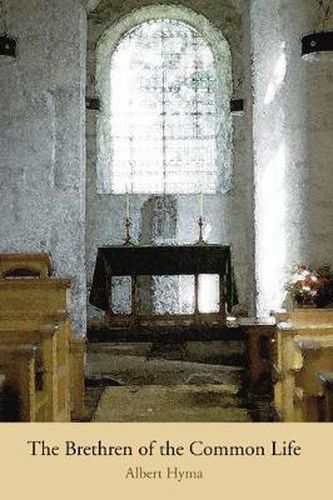Readings Newsletter
Become a Readings Member to make your shopping experience even easier.
Sign in or sign up for free!
You’re not far away from qualifying for FREE standard shipping within Australia
You’ve qualified for FREE standard shipping within Australia
The cart is loading…






The Brethren of the Common Life was a religious organization in the Netherlands founded by Gerhard Groot in the last quarter of the fourteenth century. Groot was a lay preacher who spoke out against corruption and declining spirituality within the Church. The majority of the Brethren were laymen who devoted themselves to doing charitable work, nursing the sick, studying and teaching the Scriptures, and copying religious and inspirational works. They founded a number of schools that became famous for their high standards of learning. Many famous men attended their schools, including Nicholas of Cusa, Thomas a Kempis, and Erasmus, all of whom studied at the Brethren’s school at Deventer. The Brethren’s undogmatic form of piety became known as the ‘devotio moderna’ or ‘new devotion’ - a form which some historians have argued helped to pave the road for the Protestant Reformation.
$9.00 standard shipping within Australia
FREE standard shipping within Australia for orders over $100.00
Express & International shipping calculated at checkout
The Brethren of the Common Life was a religious organization in the Netherlands founded by Gerhard Groot in the last quarter of the fourteenth century. Groot was a lay preacher who spoke out against corruption and declining spirituality within the Church. The majority of the Brethren were laymen who devoted themselves to doing charitable work, nursing the sick, studying and teaching the Scriptures, and copying religious and inspirational works. They founded a number of schools that became famous for their high standards of learning. Many famous men attended their schools, including Nicholas of Cusa, Thomas a Kempis, and Erasmus, all of whom studied at the Brethren’s school at Deventer. The Brethren’s undogmatic form of piety became known as the ‘devotio moderna’ or ‘new devotion’ - a form which some historians have argued helped to pave the road for the Protestant Reformation.